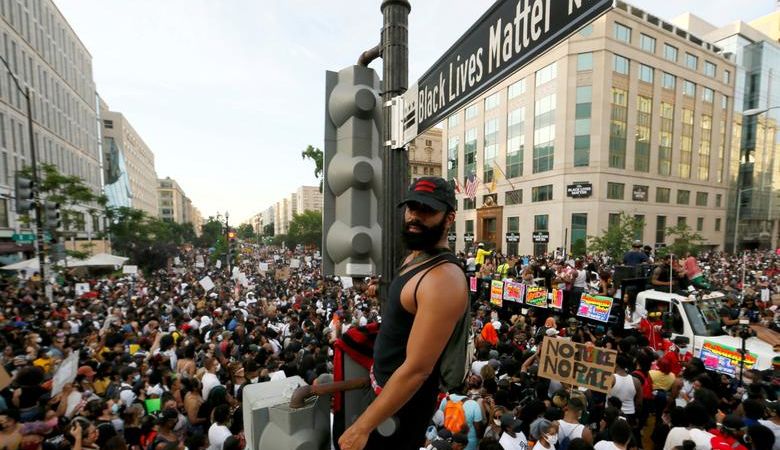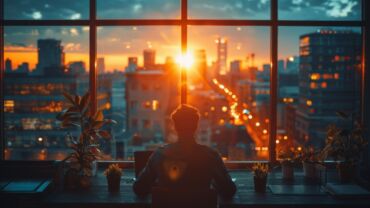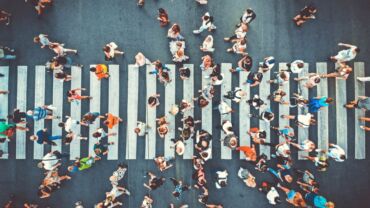A panel hosted by the ABA's Men of Color Project & Thomson Reuters, discussed the impact of racial injustice & COVID-19 amid the Black Lives Matter movement
t’s become an unfortunate aspect of American life today that racism has found its way into the very fabric of our society, including the workplace and the justice system.
To address this, the American Bar Association (ABA) Young Lawyers Diversion (YLD) Men of Color Project (MoCP), the National Bar Association YLD, and Thomson Reuters hosted a virtual panel earlier this month, discussing the impact of racial injustice, inequity, and the COVID-19 pandemic on communities of color. Jerome Crawford, Co-Chair of the ABA YLD MoCP, moderated the discussion.
Balancing work and emotional stress of the moment
All the panelists shared their personal struggles in dealing with the repetitive nature and trauma of seeing members of the Black community killed by law enforcement without due process or penalty. “The most recent display that we’ve seen in the national news addressing inconsistencies and our justice system has felt particularly challenging to me as an individual who works in our justice system and has worked with the justice system in trying to force reforms, create reforms, and introduce reforms,” said Paul Henderson, Executive Director of Police Accountability in San Francisco.
At the same time, panelists explained how they use their emotions to thrust forward with a deepened commitment to progress. “I’m excited that my frustration, my anger, and my motivation seems to be reflected in the voices that I see when I turn on the television and the faces that I see when I participate in the peaceful rallies,” Henderson added. “It shows that I’m not alone and that I’m connected to a movement that’s beyond just me and that can make a big difference.”
“You can’t educate your way out…”
Being highly educated Black men who hold white-collar jobs does not prevent men of color from experiencing aggressive interactions with law enforcement, one panelist noted. “No matter what, when someone sees you in the car and if you’re not wearing the badge or wearing the suit or wearing the uniform, you’re another black man,” Crawford said.
The impact on a personal level is devastating and speaks to the differences in how Black men are treated by society and law enforcement. For example, Henderson described how he had been detained and arrested more than eight times throughout his life often in really challenging circumstances for things that he felt were objectively unfair.
Check out the new video from the Men of Color Project.
Another panelist, Michigan Lt. Governor Garlin Gilchrist recalled that his first experience with law enforcement was at the age of nine. He said he now uses that story to reinforce awareness of how members of the Black community are viewed negatively compared to others in society. “As a statewide elected official, I have used this as an opportunity to tell that story, and that the challenges of being discriminated against, profiled, and to be put in harm’s way for living your life… that is not something that you can achieve your way out of,” Lt. Governor Gilchrist explained. “That’s not something that you can educate your way out of.”
Even when Black lawyers are dressed in a suit, they still experience wrong assumptions about who they are and their jobs. “The last time that I was stopped at gunpoint, I was the chief at the prosecutor’s office here in my city… and it wasn’t because I wasn’t in a suit because I was. It wasn’t because I didn’t have a badge, because I did,” Henderson said. “It was because I looked the way that I look, and I’m a black man that fit a profile.”
Henderson also recalled that on his first day going into court as a lawyer, the judge told him that he needed to wait for his lawyer to show up before he was allowed to speak. “He didn’t know that I was there as an attorney assigned to his courtroom.”
There is a special balancing act to being a Black man, an attorney, and a member of society and its reflected in the larger issue of Black people dying unnecessarily when they are doing mundane things, such as jogging, walking down the street, or even sleeping at home. “My titles don’t matter. My education don’t matter. My work experience don’t matter when what you see is my skin,” Henderson said, adding that has become a problem, especially in regards to justice system, “where color makes a difference, and where the color of your skin means that you have a different encounter than your peers.”
“We can’t fix what we don’t talk about”
The human impact of these negative experiences with law enforcement have a disastrous, multi-layered impact personally on Black lawyers. Panelist S. Lee Merritt, Founder of the Merritt Law Firm, elaborated on how as lawyers, men of color know in great depth the statutes that law enforcement uses to justify the violence, as well as the fear that can arise during a personal encounter with a police officer. “Because we’re attorneys and we look at some of the statutes and training that these officers go through, I know that all kinds of justifications [by an officer] could be used to kill me in that moment and it would have been justified,” Merritt said.
Crawford agreed, adding that this internal struggle needs to be expressed. “We often struggle with not measuring up — whether as an attorney or an elected official — our exterior doesn’t show our qualifications or titles,” he said.
Exacerbating the trauma is the “suffering-in-silence” norm among men of color. “We don’t have other people really checking on our wellbeing,” Merritt noted. “And I believe that there is a level of trauma… for black men who are seeing other black men getting killed and imagining the scenarios where they might be killed. It is more traumatic than we let on.”
To change the narrative of Black men and law enforcement, people who care from all races, creeds, communities, cultures are needed, the panel stressed. “We have to start unpacking some of these subjective [issues]… because we can’t move forward as a society,” said Henderson. “We can’t claim to be just. We can’t claim to be fair until we get race-neutral outcomes.
“And that’s just an issue,” he added. “But it’s less of an issue when we are silent.”







